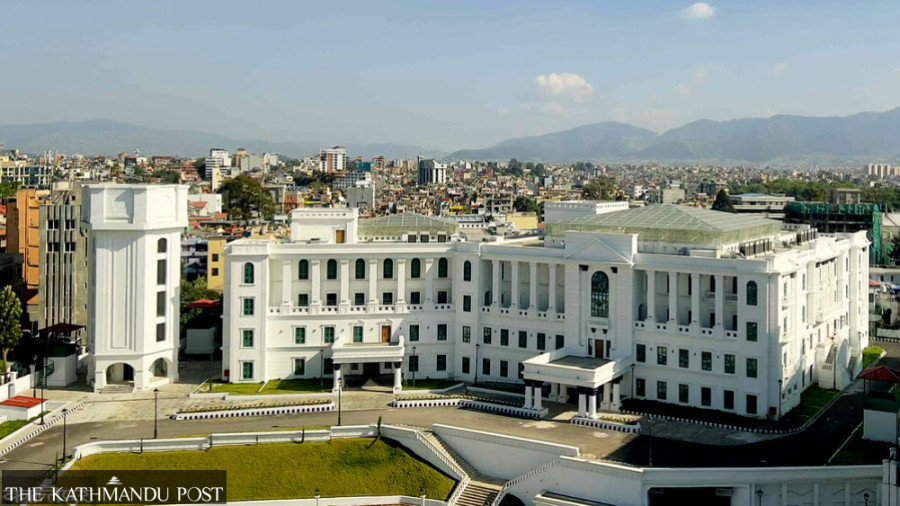Editorial
Now, the central bank
Failure to appoint a competent governor on time is an indictment of Oli’s government leadership.
Continuing on its course of making one after another egregious mistake in governance, the KP Sharma Oli government has now needlessly complicated the appointment process of the new Nepal Rastra Bank governor. The central bank has been run by an acting head since Maha Prasad Adhikari’s retirement on March 5. The bank’s Act envisions that the vital institution should have its top official at all times. To prevent a void, section 25 of the Act states that the process of appointment of the new governor should be initiated a month ahead of retirement of the incumbent. But the prime minister seems unbothered by such legal niceties. In the middle of March, the government formed a recommendation committee under the leadership of the finance minister, as mandated by the Act. But the three-member panel couldn’t sit even once. Frustrated, former governor Bijaya Nath Bhattarai, one of its members, resigned on Tuesday.
It is no secret that key leaders from the two major ruling coalition partners, the Nepali Congress and the CPN-UML, have been lobbying hard to appoint their near ones as governor. Besides, other interest groups were making a case for their own candidates. Rumors spread that the governorship was being sold to the highest bidder, greatly undermining the sanctity of the post. Appointment of competent personnel with high integrity is vital in all government bodies, especially an institution like the central bank that formulates monetary and foreign exchange policies—the bedrocks of the modern-day state economy.
The institution’s role is as important in building public confidence in the country’s banking and overall financial system. While most of the private sector in Nepal is rather poorly monitored, the oversight over the banks and financial institutions is far better. This is all because of the central bank’s autonomous and independent status that gives it a safe distance from day-to-day politics. The institution’s ability to attract competent people has traditionally been another reason behind its success.
Only an economic expert who can understand the country’s monetary and financial situation in depth, deftly analyse policy issues, resist undue pressure from political and other power centres can run the institution efficiently. But leaders appear to be hell bent on hobbling perhaps this last example of a relatively independent and autonomous state institution. The appointment process has become a victim of the clash of interests between the two main coalition partners.
Appointment of a wrong person as governor could be suicidal for the country also in view of the country’s placement under the grey list of the Financial Action Taskforce (FATF) in February. Nepal needs to work consistently to cleanse the country’s financial sector. Though it formulated some policies and laws following pressure from international agencies, it has failed in their effective implementation. Yet the post also cannot be left vacant, even for a day. If Prime Minister KP Sharma Oli cannot even ensure the appointment of the custodian of the country’s monetary policy for months on end, a big question mark rises over his government leadership and his priorities for the economy. For one, it is a mockery of a government that came to office with the promise of reviving a flagging economy and strengthening the country’s finances.




 10.12°C Kathmandu
10.12°C Kathmandu













